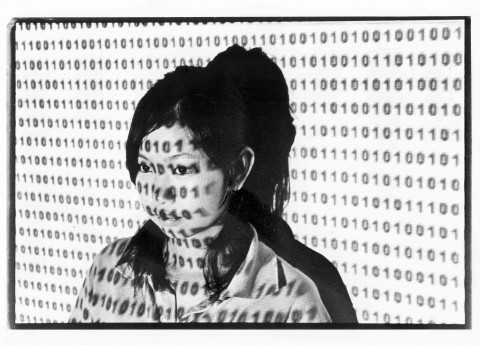Busting the Binaries
November 28, 2011 Leave a commentI’ve thought a lot about how either/or thinking reinforces hierarchies of oppression. As Tema Okun recounts in The Emperor Has no Clothes, “Inherent in western culture is the very act of defining ‘us’ in ways that claim superiority over an opposite and increasingly threatening ‘them.’”
Listening to a recent news story about the Penn State scandal, I was struck by how this same kind of thinking keeps sexual and human rights abuses under wraps. Townspeople were struggling to make sense of the alleged cover up or ignoring by Coach Paterno and President Graham Spanier of alleged crimes against children. Could these men – whom they thought to be good men – actually have looked the other way? And if so, could they be thought of as ever having been good men at all? People have rushed to redefine these former icons as “bad men,” and by implication, to continue to define themselves as “good people” who would certainly have behaved differently.
Sadly, history teaches us that “good people” do sometimes stand by and do nothing while others are abused or worse. Individuals and groups have great capacity for good, evil, indifference and more. Whether we’re confronting racism, abuse of children or other forms of oppression, we would do well to get beyond the binary that keeps us simply blaming and labeling individuals as good or bad. If we don’t examine and dismantle the systems and norms that enable these behaviors to persist, along with the ways that some folks benefit from leaving the status quo intact, we risk the lives of future generations and guarantee that we will simply repeat the exercise of “finding the bad guys” ad infinitum.
What are your ideas about how to get from here to there?

No Comments
Really appreciate your thoughts, Cynthia. This resonates with some thinking I was doing over the holiday about duality being a source of suffering. Either/or thinking can create personal and social strife, no doubt, and it’s a good question how one gets beyond or keeps from getting stuck in it. Gibran and I had a conversation this morning with Jeremy Liu and Hiroko Kikuchi about their work through the Bitter Melon Council and a desire to work with more communities to get in touch with their bitterness (attachment to loss) as a way of acknowledging the shadow and how it haunts all of us. It seems to me this is a step in the right direction. Eager to hear other ideas.
CO
Powerful post Cynthia. David Brooks got really into this in a recent column. I appreciate your pointing to the cycle. Self-righteousness can feel so empowering, but humility, empathy, compassion – this can be so much more liberating. Which is not to say we don’t call a spade a spade, but our clarity is actually augmented when we are more deeply aware of our own selves as part of “the game.”
The yogis say that liberation is beyond the pair of opposites.
I want to be free.
Thank you, Cynthia. The greatest test of this for me was getting to know the father of someone close to me who I knew to be a sexual abuser of children. As I became close to this family, I saw that this was a man who had done horrible things and at the same time was in many ways a good dad and a big hearted person. I simply could not write him off as an asshole. People are complex. Locking up all the people who sexually abuse children, even if that were possible, would not solve the problem of child sexual abuse. To truly stop it, we have to correct centuries of oppression, hurt, and felt powerlessness. Our criminal justice system will never make a dent in the rates of abuse.
We must find better ways to nurture the human spirit – our own and others’ – while creating new systems that improve the well being of all rather than focusing on isolating the bad guys as scapegoats. In fact, their destructive behaviors are often just signs of a dysfunctional system that’s hurting us all.
Jen – thank you for your powerful and countercultural words – I am
moved
Thanks all for your thoughts.
Yes Curtis–dealing with bitterness is an essential part of healing! I can attest to that personally, and to the power of binary thinking to keep us holding onto real pain. It’s a struggle to “let it go” without feeling that you’ve somehow condoned or minimized the offense.
Yes Jen–We must find better ways to nurture the human spirit while creating new systems that improve the well being of all rather than focusing on isolating the bad guys as scapegoats.
Yes Gibran–liberation is beyond the pair of opposites! Didn’t Rumi write something to the effect that there is a field beyond right and wrong. I’ll meet you there? Let’s go!